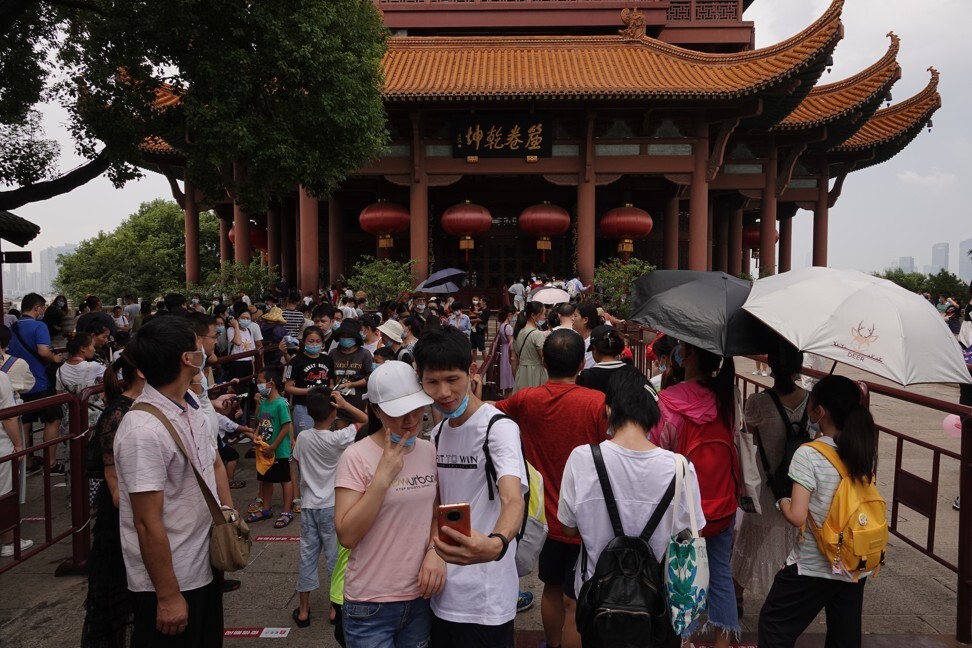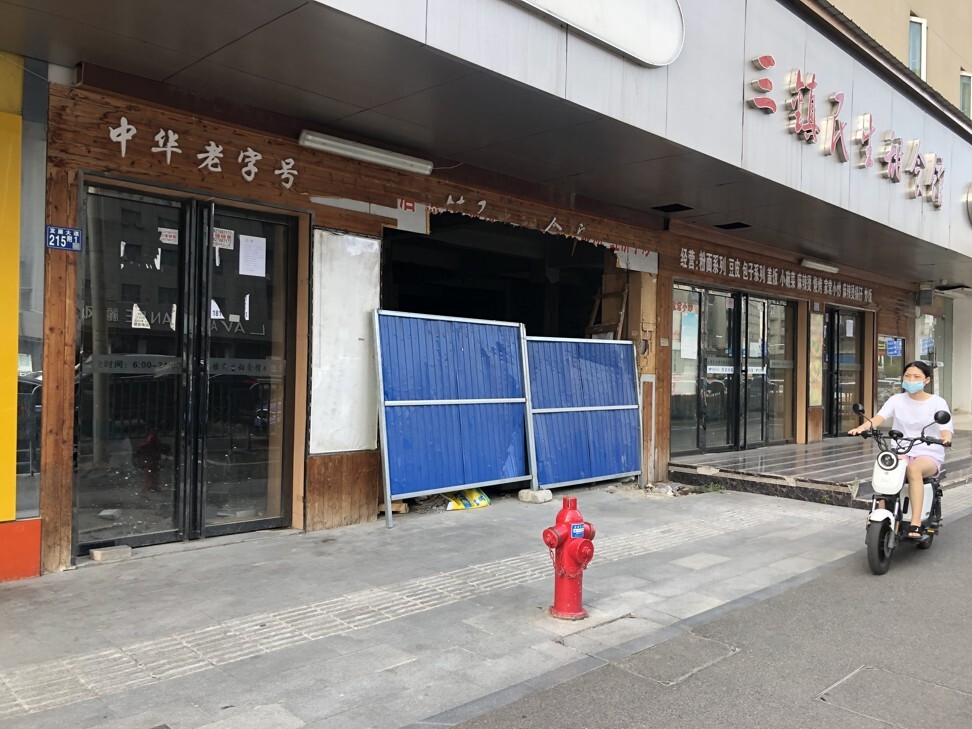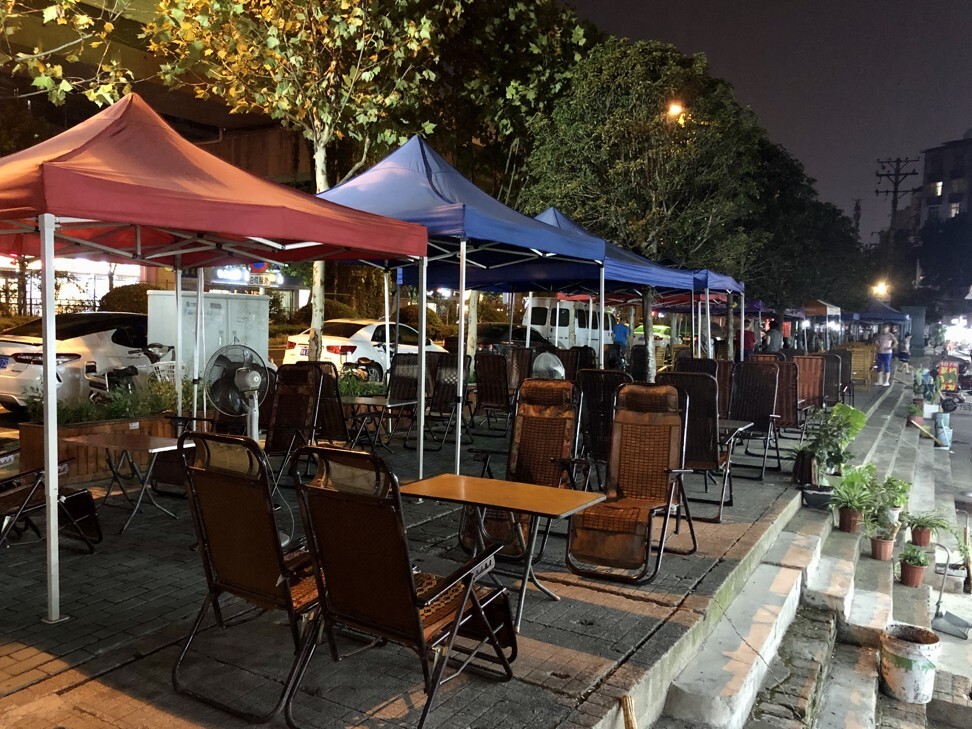Hong Kong News

‘The trauma is so deep’: economic costs of coronavirus linger in Wuhan
When Wang Dandan moved to Wuhan for a job managing a newly built hotel last summer, she could never have guessed the front seat-view she would have of the city’s battle against the coronavirus pandemic.
After the severity of the outbreak became clearer and authorities sealed off the central Chinese city on January 23, her hotel became the sleeping quarters for medical professionals deployed across the city.
Thanks to its proximity to two major hospitals, the hotel was soon abuzz with doctors and nurses at the epicentre of the crisis. The lobby of the hotel is still decorated with silk banners sent by visiting medical teams expressing gratitude for the hospitality.
But nearly 150 days after the city’s 11-week lockdown was lifted, the impact of the outbreak on business is still as raw as ever.
“The trauma caused by the pandemic is so deep for all of us, it is hard for anyone to avoid,” Wang told the South China Morning Post.
The hotel’s occupancy ratio has returned to about 90 per cent of last year’s level, but the room rate has dropped by 50 per cent on average to about 200 yuan (US$29) per night, Wang said.
“Profit is very thin … we are still trying to make up for losses,” she said. “The landlord has urged us many times to pay the rent but we can’t afford to now, we really don’t have any money.”
Large parts of Wuhan appear to have returned to normal. Buses and taxis roll through the streets, diners fill restaurants and theme parks are crowded with visitors taking advantage of the government’s decision to waive entrance fees. On Tuesday, Wuhan’s 2,800 middle schools, primary schools and kindergartens will open their gates to 1.4 million pupils, according to the local government.

While there are numerous unanswered questions about the origins of the outbreak and initial response by authorities, Beijing has touted the city’s recovery as proof its authoritarian coronavirus response is superior to that of Western democracies like the United States, which is still reeling from the health crisis.
But even as economic and social activities in the city of 11 million normalise on the surface, interviews with dozens of local residents show deep psychological scars and economic damage may take months, if not years, to repair.
Wuhan’s gross domestic product contracted 20 per cent in the first half of the year, while official statistics peg the number of Covid-19 deaths at nearly 4,000.
The Huanan Seafood Wholesale Market, the initial epicentre of the outbreak, is a reminder of the city’s continued struggle. The wet market remains closed, with entrances blocked by blue fences and stores covered by black curtains.

For a mile surrounding the site, the area has turned into a virtual no-go zone that few people are willing to enter. Dozens of stores – including pharmacies, restaurants and internet cafes – are shut and covered with posters advertising for lease or sale.
On the glass door of one breakfast restaurant, a notice says the shop will be “temporarily closed from the afternoon of January 3” due to disinfection of the wet market. The market was suspended on January 1 for deep cleaning and authorities sounded the alarm about human-to-human infection for the whole country on January 20.
A few kilometres away, in a dumpling store run by a couple from Heilongjiang province, one of the owners said the little restaurant resumed business in May when she thought the situation was safe. However, she complained that turnover at the eatery, where a plate of pork dumplings cost 11 yuan (US$1.50), had halved compared with the days before the pandemic.
“I don’t know whether it’s because people no longer want to eat out, or it’s because they don’t have much money to eat out after several months of being out of job,” said the woman, who only gave her surname Xu.

The bleak scene is also visible downtown at Hankou Tea Market. Outside the stores merchants have set up rows of tables and chairs that stretch for more than two hundred metres along the road. In summer, the area would normally be full of people drinking tea and chatting until midnight, but only a handful of customers sit outside now.
The owner of a tea house, who only gave her surname Mei, said business was only slightly better than during the outbreak.
“I might have to get [another] job. At least I would have a salary,” she said, adding that although her losses had narrowed recently, the shop was still losing money.
What worried her most was that the pandemic might return in autumn and winter. “It will be difficult if there is another wave,” she said.
Despite Mei’s concern, the last local case of coronavirus was reported in May and the city – like most of China – has been cleared of infections. Indeed, many people were shocked at the speedy recovery when a video of a pool party at the Wuhan Maya Beach Water Park emerged online last month.
On a recent Sunday night, the huge swimming pool was packed shoulder to shoulder with people – including kids and the elderly – none of whom wore masks or practised social distancing. As electronic music played in the background, an employee said the venue had been full everyday after reopening in late June.
In a landmark food street beside the Hankou Water Tower, hundreds of people queued to buy barbecue, stinky tofu, cold rice noodles and chilli clams as disposable plates and chopsticks piled high in trash bins on the roadside.
In most venues, including shopping malls, body temperature checks and health code scanning are no longer practised. Overall, reminders about the coronavirus are fading from public venues, with warnings about virus prevention hardly visible on notice boards and signs.
But while the worst of the outbreak might be over for residents, there is still a lingering bitterness in some corners.
Wang Yan, a Wuhan native who was part of the workforce that built the Huoshenshan Hospital in just eight days, said the pandemic was not something that can be easily forgotten.
The hospital, which ceased operation on April 14, is often portrayed as a monument to China’s efficiency, but Wang said there was nothing to be proud of. It was assembled as Wuhan’s regular hospitals were overflowing with patients, people were dying helplessly at home and the city was gripped by anger and despair, he said.
“It was built upon the fact that the whole city was collapsing,” he said.
Wang, the hotel manager, said the Wuhan government had introduced some preferential rent policies for businesses, but her hotel has not yet been able to take advantage of them.
“In fact, the implementation is slow, and the application procedures are very complicated,” she said.
“Everyone in Wuhan will be on a very tight budget this year, because we haven’t been to work for about three months.”











